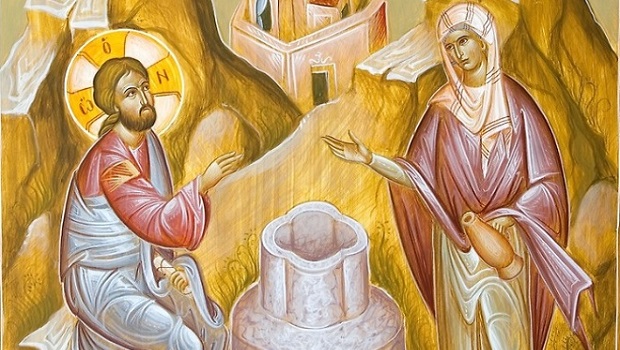Saint Justin Popovich
We humans find ourselves on the road between paradise and hell, between God and the devil. All our thoughts and reflections, and every one of our feelings, bring the soul a little closer to paradise or hell. If a thought or reflection is rational (that is Godly) and brings us to the Divine Word, Who is beyond comprehension and conception, then that is already paradise for us. But if the thought lacks the Divine Word and is not in accord with Him, it inevitably brings us to absurdity and folly, to the devil, and this is already hell. What is true of thought also holds good for feelings. So, for us, everything begins here on earth, paradise or hell. Our life on this planet is an enormous drama: all the time, the ephemeral clashes with the eternal, the mortal with the immortal, the good with the evil, the things of the devil with those of God.
Human thought is a curse when there’s no desire to transform it into prayer, and for it to be perfected with prayer. It’s inconceivable for there to be thought which, in the face of the mysteries of the cosmos, is not transformed into prayerful wonderment and yearning. There is nothing more wonderful than thought which, at the sight of God’s cosmos, unconsciously pours itself out in prayer.
Within everything worldly, there is something of the heavenly; in everything natural, there is the supernatural. In a grain of wheat, there is a part of heaven, because, for it to be born, it has already absorbed the light, the heat and the winds of the heavens. There is something of the stars in every form of plant life, minerals, every living organism, and, particularly, in every human being. Everything in this earthly world is closely linked to the heavenly world. The conduit from the natural to the supernatural and vice versa is both mystical and impenetrable, and therefore cannot be subjected to any evaluation by human investigative initiatives. Through the invisible protons and photons, the supernatural mysteriously permeates the natural, the invisible pervades the visible. And, through the mystical photons of the soul, the luminous energies of the Divine Word infuse our human existence. So there are no sealed borders between the supernatural and the natural, between the visible and the invisible. In everything earthly, there is a great deal of the heavenly.
It is up to us to build upon and cultivate within us whatever is eternal and theanthropic, to develop an infinite sense and recognition of eternal life. This, indeed, is why God the Word ‘became human’: in order to teach us how to achieve eternal life in this ephemeral world. Our faith is nothing other than an unceasing struggle for eternal life, a constant witness for eternal life (1 Tim. 6, 12). The earth is a battleground of suffering for eternal life. This is our calling. If you think otherwise, you are not one of Christ’s people.
Knowledge and faith! Between the impulses of the two, the human spirit suffers trials and tribulations without number. If there is one thing that is an effort for the human spirit, it is knowledge; why would faith not be, as well? Of course it is. This is where we find numberless shipwrecked souls, but also survivors. Both knowledge and faith are logically equally valid. In essence the whole of knowledge is based on faith. In the case of faith, it is that our conscience is healthy, rational, natural and worthy of our trust. We accept the world in the way our organs of knowledge present and represent it, and this is so because we have confidence in our human knowledge, which, by its nature is invisible and intangible. Faith, as an instrument of knowledge, is aware that, for perceptible human knowledge, it is above intellection and conception. It has its own eye, which sees the invisible. Of course, the fields of vision, of faith and knowledge, are both restricted: that which is beyond conception is inconceivable. Yet it still engages, in witness, the soul which embraces Tertullian’s formula of fervent faith: ‘Credo quia absurdum est’, ‘I believe because it is absurd’, or rather ‘is beyond reason and conception’. Knowledge of God is so far beyond reason that it often appears to be absurd.
Source: pemptousia.com
ABOUT THE ORTHODOX CHRISTIAN NETWORK
Orthodox Christian Network (OCN) is a 501(c)3 and an official agency of the Assembly of Canonical Bishops of the United States of America . It is a recognized leader in the Orthodox Media field and has sustained consistent growth over twenty-two years. We have worked to create a community for both believers and non believers alike by sharing the timeless faith of Orthodoxy with the contemporary world through modern media. We are on a mission to inspire Orthodox Christians Worldwide. Click to signup to receive weekly newsletter.
Join us in our Media Ministry Missions! Help us bring the Orthodox Faith to the fingertips of Orthodox Christians worldwide! Your gift today will helps us produce and provide unlimited access to Orthodox faith-inspiring programming, services and community. Don’t wait. Share the Love of Orthodoxy Today!
OCN has partnered with Pemptousia. A Contemporary post-modern man does not understand what man is. Through its presence in the internet world, Pemptousia, with its spirit of respect for beauty that characterizes it, wishes to contribute to the presentation of a better meaning of life for man, to the search for the ontological dimension of man, and to the awareness of the unfathomable mystery of man who is always in Christ in the process of becoming, of man who is in the image of divine beauty. And the beauty of man springs from the beauty of the Triune God. In the end, “beauty will save the world”.




0 Comments